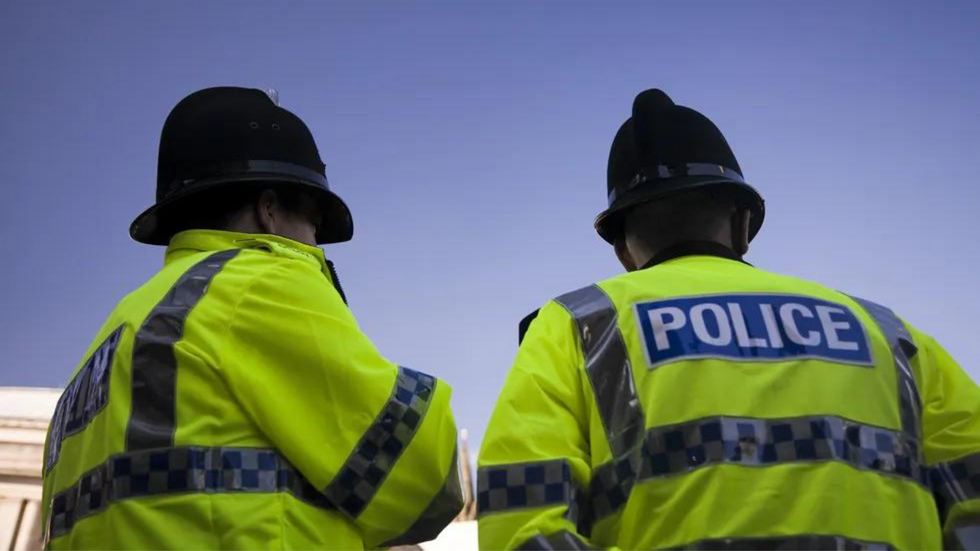Eliana Silver
Guest Reporter
Police will be instructed to record non-crime hate incidents (NCHIs) only when there is a clear risk to community tensions, under new guidance from the Home Office.
The move comes as part of a "common sense" approach to tackle concerns that trivial cases are wasting police time.
NCHIs were originally introduced following the racist murder of Stephen Lawrence to monitor situations that could escalate into more serious harm.
The Home Office is now working with the College of Policing and the National Police Chiefs Council to develop a more consistent approach to recording these incidents.

More than 13,000 non-crime hate incidents were logged by police forces in the past year, including cases involving schoolchildren, vicars and doctors.
Among these were numerous trivial cases, such as a doctor cited for allegedly misdiagnosing a patient and a vicar recorded as a suspect for saying it was a sin to be gay.
In Warwickshire, officers logged an NCHI against someone for refusing to shake a person's hand in a dispute over gender identity.
The guidance was tightened last year to focus on incidents clearly motivated by intentional hostility where there is a real risk of escalation causing significant harm.
MORE LIKE THIS:
However, this has led to confusion and inconsistency among the 43 police forces in England and Wales.
Home Secretary Yvette Cooper believes NCHIs can serve as a crucial tool for authorities to track and warn of rising abuse against Jewish and Muslim communities.
Cooper has indicated that current guidance needs revision as it is not effectively capturing sufficient incidents of antisemitism and Islamophobia.
Both the Community Security Trust, a Jewish charity, and Tell Mama, which monitors anti-Muslim hate, report that police records of NCHIs and hate crimes represent only a fraction of the actual abuse directed at these communities.

The Home Secretary aims to strike a balance between preventing serious community threats while avoiding the recording of trivial incidents.
A report by Policy Exchange think tank estimates that over 60,000 police hours are spent investigating NCHIs annually.
This calculation assumes each incident requires five hours of police time, involving multiple officers, staff and supervisors.
The think tank warns NCHIs are not just a distraction but are actively taking officers away from crime-fighting duties.
The report revealed significant inconsistencies between forces. Essex police recorded 21.5 NCHIs per 100 officers last year - three times the rate of the Metropolitan Police, four times that of Greater Manchester police and ten times that of West Yorkshire police.
Policy Exchange has called for the complete abolition of NCHI recording.
A Home Office source said: "We'd expect the police to be applying a common sense approach when it comes to the recording of NCHIs and guidance is already clear that trivial incidents should not be recorded. Where NCHIs can be useful is where they help the police to build an intelligence picture around community tensions in order to map trends and prevent escalation."
Former Met commissioner Lord Hogan-Howe has backed calls for parliamentary oversight of NCHIs.
"Whether something is a non-crime hate incident is a subjective test based on guidance, producing inconsistent outcomes," he said.
He urged ministers to examine the Policy Exchange report carefully to inform future policy decisions.
Find Out More...
The move comes as part of a "common sense" approach to tackle concerns that trivial cases are wasting police time.
NCHIs were originally introduced following the racist murder of Stephen Lawrence to monitor situations that could escalate into more serious harm.
The Home Office is now working with the College of Policing and the National Police Chiefs Council to develop a more consistent approach to recording these incidents.

More than 13,000 non-crime hate incidents were logged by police forces in the past year, including cases involving schoolchildren, vicars and doctors.
Among these were numerous trivial cases, such as a doctor cited for allegedly misdiagnosing a patient and a vicar recorded as a suspect for saying it was a sin to be gay.
In Warwickshire, officers logged an NCHI against someone for refusing to shake a person's hand in a dispute over gender identity.
The guidance was tightened last year to focus on incidents clearly motivated by intentional hostility where there is a real risk of escalation causing significant harm.
MORE LIKE THIS:
- 'Law and order!' Hooligans face two years behind bars just weeks after Labour freed thousands to ease overcrowding
- Ex Met boss calls for review of hate crime incidents that take up 60,000 hours of officers' time each year
- Woke madness: Police recorded non-crime hate incident over gender row handshake refusal
However, this has led to confusion and inconsistency among the 43 police forces in England and Wales.
Home Secretary Yvette Cooper believes NCHIs can serve as a crucial tool for authorities to track and warn of rising abuse against Jewish and Muslim communities.
Cooper has indicated that current guidance needs revision as it is not effectively capturing sufficient incidents of antisemitism and Islamophobia.
Both the Community Security Trust, a Jewish charity, and Tell Mama, which monitors anti-Muslim hate, report that police records of NCHIs and hate crimes represent only a fraction of the actual abuse directed at these communities.

The Home Secretary aims to strike a balance between preventing serious community threats while avoiding the recording of trivial incidents.
A report by Policy Exchange think tank estimates that over 60,000 police hours are spent investigating NCHIs annually.
This calculation assumes each incident requires five hours of police time, involving multiple officers, staff and supervisors.
The think tank warns NCHIs are not just a distraction but are actively taking officers away from crime-fighting duties.
The report revealed significant inconsistencies between forces. Essex police recorded 21.5 NCHIs per 100 officers last year - three times the rate of the Metropolitan Police, four times that of Greater Manchester police and ten times that of West Yorkshire police.
Policy Exchange has called for the complete abolition of NCHI recording.
A Home Office source said: "We'd expect the police to be applying a common sense approach when it comes to the recording of NCHIs and guidance is already clear that trivial incidents should not be recorded. Where NCHIs can be useful is where they help the police to build an intelligence picture around community tensions in order to map trends and prevent escalation."
Former Met commissioner Lord Hogan-Howe has backed calls for parliamentary oversight of NCHIs.
"Whether something is a non-crime hate incident is a subjective test based on guidance, producing inconsistent outcomes," he said.
He urged ministers to examine the Policy Exchange report carefully to inform future policy decisions.
Find Out More...